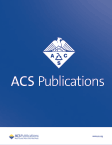Me, myself and AI: How gender, personality and emotions determine willingness to use Strong AI for self-improvement
IF 2.9
Q2 PUBLIC, ENVIRONMENTAL & OCCUPATIONAL HEALTH
引用次数: 0
Abstract
With current technological advancements in AI pushing the boundaries of human-level capabilities, using general human-level artificial intelligence (i.e., Strong AI) holds potential for substantially improving human cognitive abilities. We examine individual-level antecedents of willingness to use Strong AI for improving human cognitive abilities. Two quantitative studies (N1 = 1446, N2 = 1090) reveal that gender and emotions have significant effects on the intention to use Strong AI for cognitive self-enhancement. Male (compared to female) participants demonstrate a higher willingness to use Strong AI for self-improvement. This difference can be explained partly by negative and independently by positive emotional reactions toward Strong AI. Neuroticism moderates the indirect effect via negative emotional reactions, such that sex differences in negative emotions diminish with higher levels of neuroticism. Our research findings provide first empirical evidence for demographic asymmetries regarding adoption intentions of Strong AI for cognitive self-improvement. We emphasize the importance of addressing sex differences through the management of positive as well as negative emotional responses and personality dispositions when designing equitable strategies for implementing Strong AI within our societies.
我、我自己和人工智能:性别、个性和情感如何决定使用强人工智能进行自我提升的意愿
随着当前人工智能技术的进步不断突破人类水平能力的界限,使用一般人类水平的人工智能(即强人工智能)有望大幅提高人类的认知能力。我们研究了使用强人工智能提高人类认知能力意愿的个体层面前因。两项定量研究(N1 = 1446,N2 = 1090)显示,性别和情绪对使用强人工智能提高自我认知能力的意愿有显著影响。男性(与女性相比)参与者更愿意使用强人工智能进行自我提升。这种差异可以部分归因于对强人工智能的消极情绪反应,也可以单独归因于对强人工智能的积极情绪反应。神经质通过负面情绪反应调节了间接效应,因此负面情绪的性别差异会随着神经质水平的提高而减小。我们的研究结果首次为采用强人工智能进行自我认知提升的意愿方面的人口非对称性提供了实证证据。我们强调,在我们的社会中设计实施强人工智能的公平战略时,通过管理积极和消极情绪反应及人格倾向来解决性别差异问题非常重要。
本文章由计算机程序翻译,如有差异,请以英文原文为准。
求助全文
约1分钟内获得全文
求助全文
来源期刊

ACS Chemical Health & Safety
PUBLIC, ENVIRONMENTAL & OCCUPATIONAL HEALTH-
CiteScore
3.10
自引率
20.00%
发文量
63
期刊介绍:
The Journal of Chemical Health and Safety focuses on news, information, and ideas relating to issues and advances in chemical health and safety. The Journal of Chemical Health and Safety covers up-to-the minute, in-depth views of safety issues ranging from OSHA and EPA regulations to the safe handling of hazardous waste, from the latest innovations in effective chemical hygiene practices to the courts'' most recent rulings on safety-related lawsuits. The Journal of Chemical Health and Safety presents real-world information that health, safety and environmental professionals and others responsible for the safety of their workplaces can put to use right away, identifying potential and developing safety concerns before they do real harm.
 求助内容:
求助内容: 应助结果提醒方式:
应助结果提醒方式:


